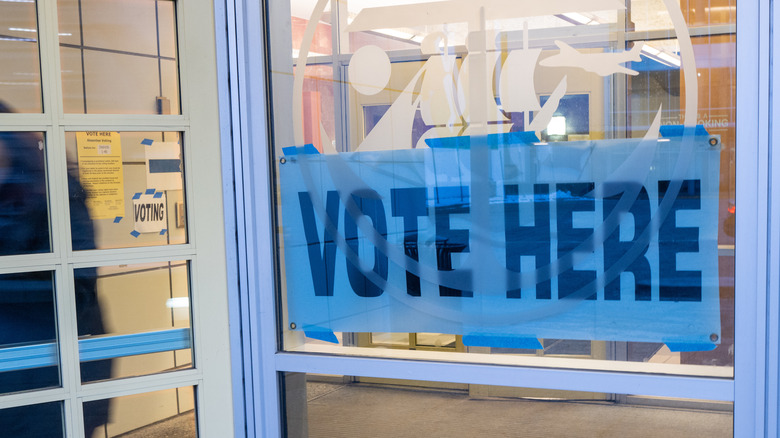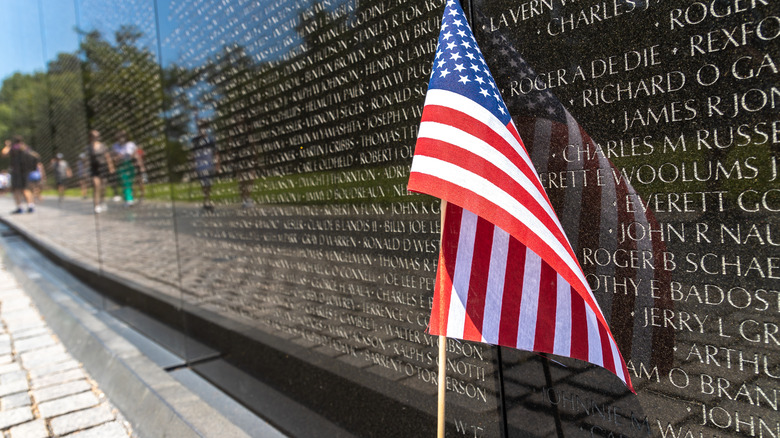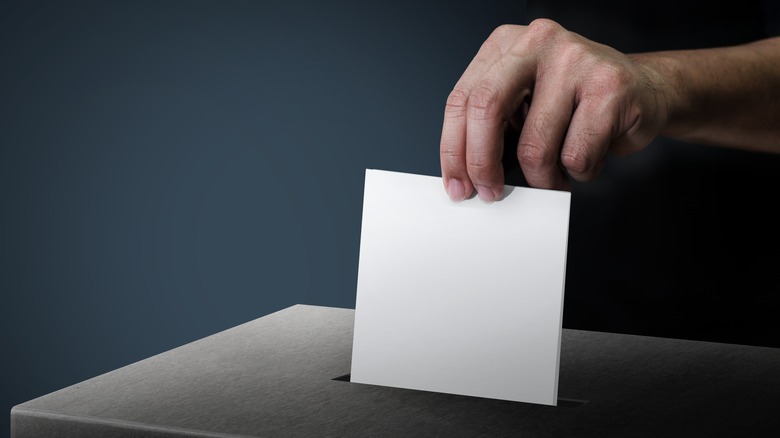Why The Voting Age In America Is 18
You've heard it said a million times: "You can go to war when you're 18, but you can't have a drink until you're 21." Imagine seeing a veteran at a bar, and in a gesture of goodwill and sincere veneration, you offer to buy him a beer. Sadly, he has to decline your patriotic gesture because he's only 20 years old. Seems a little odd, doesn't it? On the other hand, he can still leave the bar and go cast a vote toward candidates and policies that directly affect him.
According to The White House, the national voting age across all 50 states has been 18 since July 1, 1971, when the 26th Amendment to the Constitution was ratified and extended to state and national elections. Since then, people join the national voting demographic as soon as they're considered legal adults, but what about the years leading up to 1971? What was the case in those pre-26th Amendment days, and why were things adjusted to include 18-year-olds across the nation?
Vietnam dropped the voting age
For a time, the voting age was in fact 21. After the 14th Amendment's ratification in 1868, a subsequent clause was enacted that granted men across the country age 21 and up the right to vote. It's funny to think about — in the spectrum of things, the voting and drinking ages switched places, given that you were once able to drink at 18 years old. However, according to CBS 8, things came under reconsideration after the Vietnam War started sending 18-year-olds off to the far regions of the world to fight and die for the country of their birth.
Political science professor Kerwin Swint recently remarked, "It took the Vietnam conflict, which brought so much change in this country. It was deemed to be unfair that an 18-year-old could be drafted into service and die in battle when they couldn't even vote." Following widespread protests and public demands for reconfiguration in the voting sphere, an extension of the Voting Rights Act of 1965 was signed into law and made it so 18-year-olds could vote in national elections. However, it wasn't until the 26th Amendment that young adults could also participate in state and local elections as well (via CBS 8).
Varying opinions about young voters
In 2022, there was a lot of dialogue circulating amongst the general public about the effects of extending voting privileges to young people. Given the fact that California pushed to lower the voting threshold to include 16 and 17-year-olds (per CBS 8), opinions cropped up like gophers in the dirt. Electoral Studies reports that some critics argue that young people, even those who have reached 18 years old, lack the capacity to effectively weigh legislation propositions and ideological issues that affect everyone.
Others maintain the idea that young people, even 16 and 17-year-olds, should be afforded the right to vote and that it would promote further participation in the electoral process, both on a national and state level. However, certain surveys carried out by the Electoral Studies indicate a marginal increase in voter turnout with young people when age restrictions are lowered. Perhaps the more extensive effects will reveal themselves in good time.


